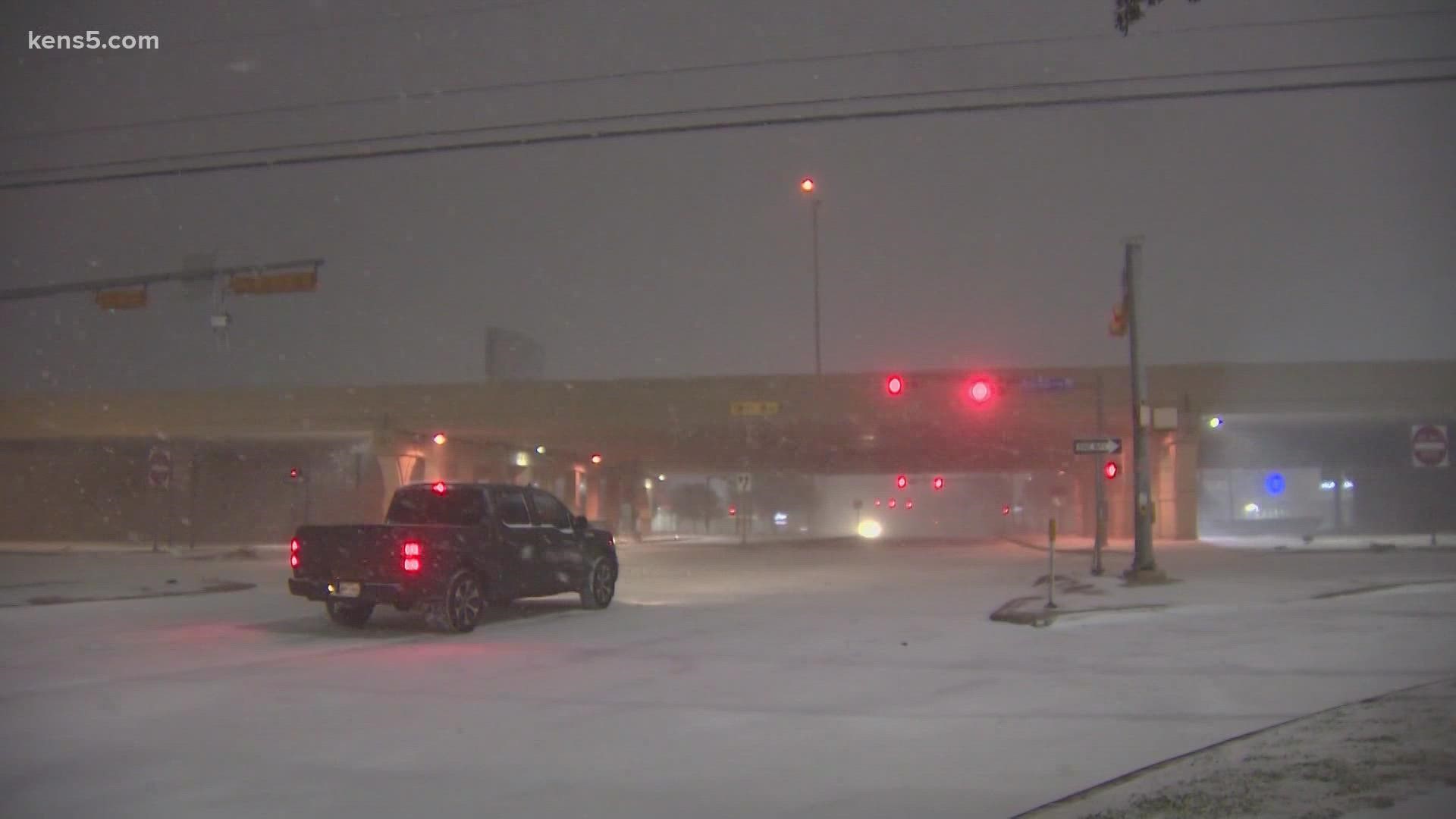TEXAS, USA — This story originally appeared in the Texas Tribune.
In a committee hearing Tuesday, Texas senators were furious that natural gas companies won’t have to better prepare their facilities for extreme weather before this winter and rebuked the Texas Railroad Commission, which regulates the state’s massive oil and gas industry, for not fixing the problem sooner.
“Wait a minute,” state Sen. Robert Nichols, R-Jacksonville, told Wei Wang, executive director of the Railroad Commission. “You haven’t done it yet?”
But the “loophole” that lawmakers spent the hearing condemning and the slow timetable for winterizing the state power grid were part of legislation they approved during the regular legislative session in the spring.
Gov. Greg Abbott made weatherizing the state’s electricity generation infrastructure an emergency priority immediately after February’s deadly winter storm, which left millions without power for days in freezing weather and caused the deaths of 700 Texans, according to a BuzzFeed News analysis.
In June, Abbott signed bills lawmakers had approved aimed at ensuring the weatherization process happened. At the time, Abbott said “everything that needed to be done was done to fix the power grid.”
Senate Bill 3, which Abbott signed into law, calls for creating a committee to map out the state’s energy infrastructure by September 2022, then gives the Railroad Commission 180 days to finalize its weatherization rules.
On Tuesday, lawmakers on the Senate Business and Commerce Committee were frustrated that the new law allows natural gas companies to opt out of weatherization requirements if they don’t voluntarily declare themselves to be “critical infrastructure” with the state.
They also criticized the timelines laid out by the legislation they approved earlier this year and by the rule-making process now underway at the Railroad Commission that has made weatherizing the state’s natural gas system — a key component of the power grid — a slow, frustrating task.
Senators told Wang they want the Railroad Commission to move more quickly to require gas companies to weatherize their equipment.
“I recognize the urgency,” Wang said.
“I don’t think you do,” said state Sen. Donna Campbell, R-New Braunfels.
Energy experts said lawmakers have themselves to blame if they wanted the state’s natural gas infrastructure, which sends fuel to many of Texas’ largest power plants, to be weatherized quickly — or at all.
“The Legislature left this loophole open,” said Doug Lewin, an Austin-based energy and climate consultant.
Wang told the committee that the Railroad Commission’s proposed rule to implement weatherization standards “mirrors the language in SB 3.” That didn’t stop senators from demanding immediate action by the commission.
“We’re not going to mince our words. I’m going to start naming railroad commissioners’ names if it’s required,” state Sen. John Whitmire, D-Houston, told Wang. “And your job ought to be at stake.”
Campbell, who at one point Tuesday threatened to shake up the Railroad Commission’s responsibilities, asked Wang: “Why are you not demanding that [natural gas companies] prepare if they’re one of the players?”
Senators asked Wang whether his agency needed better clarity from the Legislature in carrying out the weatherization process, and if so, they would ask Abbott to add the issue to the ongoing special session agenda. Only the governor has the ability to add items to special session agendas, and this session is the only one planned before 2023.
The state’s largest power generation company, Vistra Corp., has begun weatherizing its infrastructure, Vistra senior vice president Amanda Frazier told senators. But the company relies heavily on buying natural gas from other companies to fuel its power plants.
“So you’re weatherizing your plants, but your fuel supply is not?” Nichols asked Frazier during Tuesday’s hearing.
“It’s an enormous concern of ours,” Frazier said.
After the hearing, Campbell said the Railroad Commission now has a “great opportunity” to quickly weatherize the natural gas industry and said if the agency fails, that job could be given to the state’s Public Utility Commission.
“I don’t know, but it’s going to be looked at, so you better prove up your worth and your value,” Campbell told Wang.

